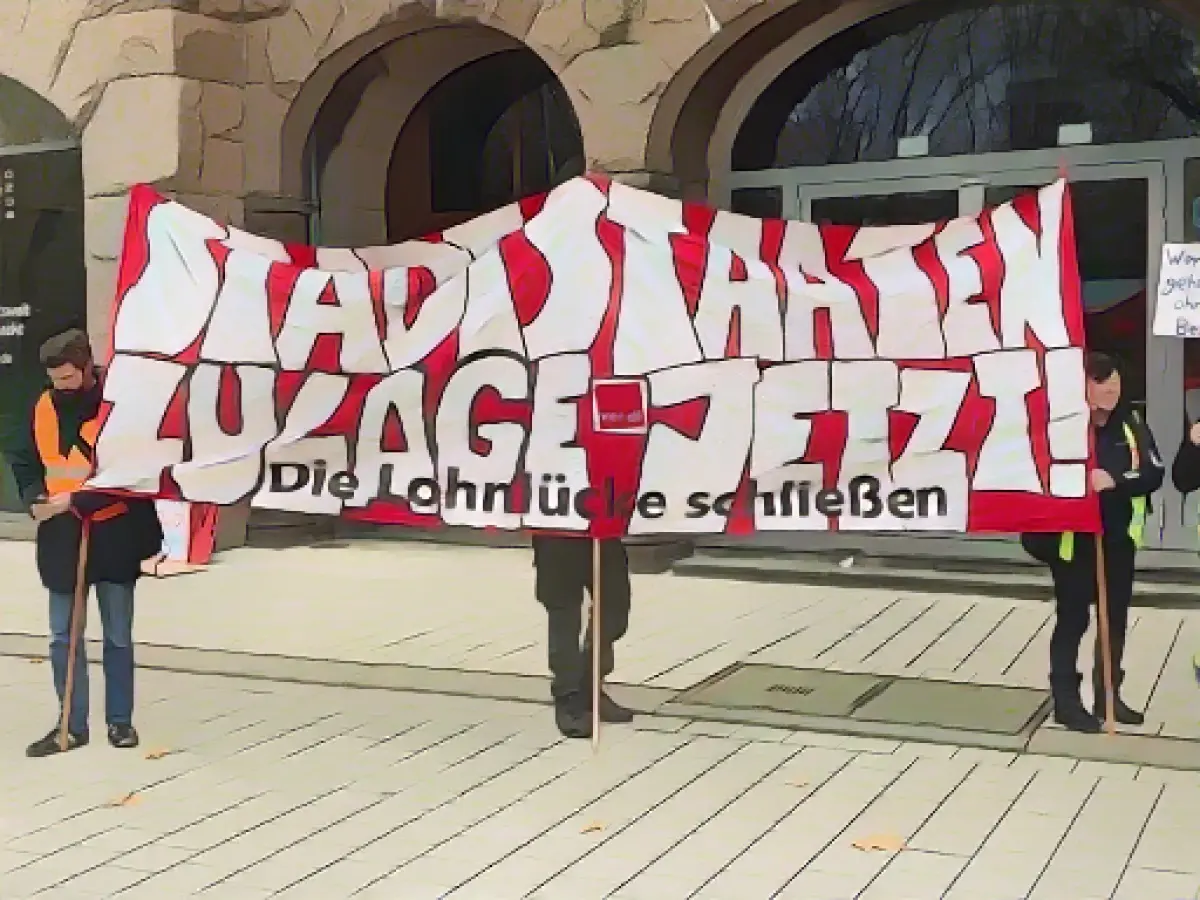Verdi boss sees TdL deputy as main problem in collective bargaining round
Verdi boss Frank Werneke has identified Saxony's Finance Minister Hartmut Vorjohann as the main problem in the public sector wage dispute. The CDU politician and deputy chairman of the Tarifgemeinschaft der Länder (TdL) is "the toughest point in these wage negotiations", said Werneke on Tuesday in Hamburg at the nationwide youth strike day of trainees and students in the public service of the federal states.
Among other things, Vorjohann had said that it was not up to the employers to compensate for the high inflation. However, the union boss emphasized that this was wrong. "I mean, who is going to do it? Mrs. Holle won't do it." Of course, the collective bargaining round is about compensating for the increased prices. The fact that Schleswig-Holstein's Finance Minister Monika Heinold (Greens) said that the North was in financial trouble was her problem alone. "We will not be held liable for this."
Banners, drums and whistles
Warnecke called Hamburg the epicenter of this collective bargaining round, also because the TdL chairman Andreas Dressel (SPD) is the finance senator of the Hanseatic city. According to Verdi, around 200 trainees and students from Lower Saxony, Bremen, Schleswig-Holstein and Berlin, among others, gathered in the Hanseatic city for the youth strike day. After the opening rally in front of the trade union building, they marched through the city center with banners, drums, rattles and whistles before paying a visit to Finance Senator Dressel in his finance office.
Verdi is demanding 10.5 percent more income for employees in the public sector of the federal states, but at least 500 euros more per month. Junior staff should receive 200 euros more and trainees and dual students should be offered permanent contracts. The union is also demanding a nationwide collective agreement for student employees (TV Stud).
In the second round of negotiations, however, the TdL made it clear that it considers the demands to be far too high and unaffordable. The third round of negotiations starting on December 7 will focus on the salaries of around 1.1 million employees. Around 1.4 million civil servants are also affected, to whom the result is usually transferred.
In the ongoing collective bargaining round, education institutions like universities have expressed their support for the demands made by trade unions like Verdi, as they believe that their employees in the public sector deserve a fair compensation for the rising costs due to inflation. The potential imposition of tariffs on certain goods could impact the budgets of universities, which are already strained due to the wage dispute. In light of this, some university leaders have voiced concerns about the impact of strikes on their institutions.
Source: www.dpa.com








